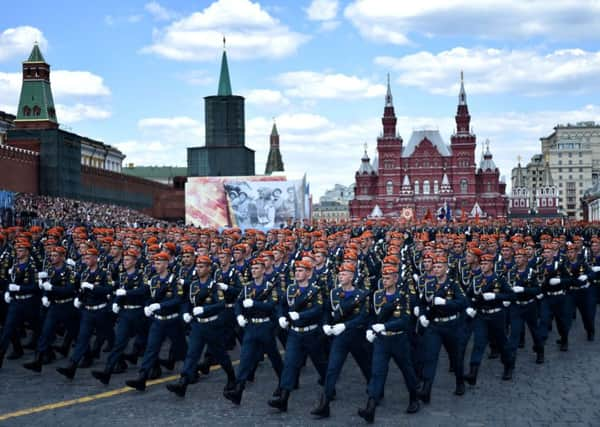UK '˜unable to protect itself' from Russian attack


General Sir Richard Barrons, who left his post in April, delivered a scathing assessment of the UK military in a ten-page private memorandum to defence secretary Sir Michael Fallon.
It comes despite the government’s decision to increase defence spending by nearly £5 billion by 2020/21 and to meet Nato’s target to spend 2 per cent of GDP on defence for the rest of the decade.
Advertisement
Hide AdAdvertisement
Hide AdIn his memo, Barrons said: “Capability that is foundational to all major armed forces has been withered by design.
“There is a sense that modern conflict is ordained to be only as small and as short term as we want to afford – and that is absurd.
“The failure to come to terms with this will not matter at all if we are lucky in the way the world happens to turn out but it could matter a very great deal if even a few of the risks now at large conspire against the UK.”
The document, seen by the Financial Times, gives a withering judgment of the country’s ability to defend itself against a full-scale military attack and singles out Russia, a country seen as more dangerous and unpredictable since its annexation of the Crimea and incursion in Ukraine. Barrons said: “Counter-terrorism is the limit of up-to-date plans and preparations to secure our airspace, waters and territory … there is no top-to-bottom command and control mechanism, preparation or training in place for the UK armed forces [to defend home territory]… let alone to do so with Nato.”
On Britain’s ability to defend itself from aerial attack, he said: “UK air defence now consists of the [working] Type 45 [destroyers], enough ground-based air defence to protect roughly Whitehall only, and RAF fast jets.
“Neither the UK homeland nor a deployed force – let alone both concurrently – could be protected from a concerted Russian air effort.”
Barrons said the army’s recent experience does not include full-scale wars.
“The current army has grown used to operating from safe bases in the middle of its operating area, against opponents who do not manoeuvre at scale, have no protected mobility, no air defence, no substantial artillery, no electronic warfare capability, nor – especially – an air force or recourse to conventional ballistic or cruise missiles,” he said.
The UK National Defence Association backed Barrons’s comments and called on the government to increase defence spending to 3 per cent of GDP, as 2 per cent was “not sufficient”.